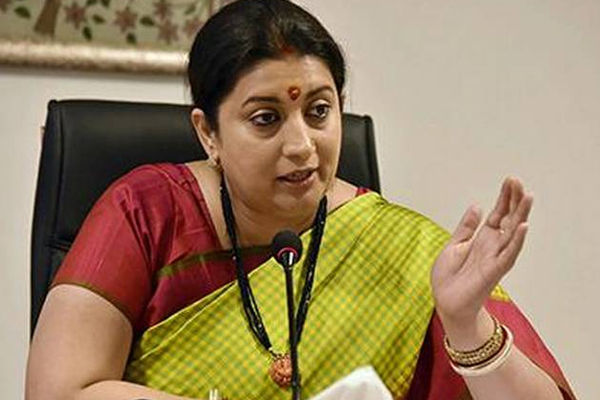new Delhi. Union Minister for Women and Child Development Smriti Irani said on Wednesday that the central government is ready to bring the ‘toughest’ anti-trafficking bill in Parliament. Irani stated this at the ‘Laureates and Leaders for Children’ summit organized by Nobel Prize winner Kailash Satyarthi for India’s views on the response to the epidemic crisis in relation to women and children.
Irani said, “Ladies and gentlemen, as we say, we in the Ministry of Women and Child Development are currently trying to introduce in Parliament the most stringent law on trafficking of women and children.”
He listed laws on child pornography and child protection, which have been passed before the epidemic. He said that the Government of India has approved an anti-smuggling unit in each district of India.
Irani said that it has also actually set up a one-stop crisis-crisis center for children, women and civil society leaders around the clock.
He urged to follow a united approach across the world, where consumers are sensitive to ensure that the products are child labor free.
Earlier, a report was also considered at the summit, which looked at the global response to the epidemic in India as well as worldwide. The report found that over four crore internal migrant workers in India had to bear the brunt of the ‘severe lack of government support systems’.
The report said that complaints related to domestic violence against women increased from 25 March to 31 May. In this report, the situation of other poor countries along with India has also been mentioned.
The report highlights the plight of people in terms of unemployment in most countries including India.
The report highlights the serious economic consequences of the nationwide bandh and the problems faced by the poor and weaker sections worldwide. It has highlighted unemployment, impact on food supply, school education, increasing violence against children, etc.
Apart from this, the report also mentions the adverse effects due to the epidemic on the global economy. It warns that if the epidemic continues beyond 2020, the world economy will shrink by 5.2 percent. Along with this, there is also the danger of more than 400 million people going into extreme poverty. Not only this, 34.7 crore children are still unable to access school feeding programs due to school closure and more than 1.2 million children below five years of age are estimated to die from malnutrition in the next six months.







Leave a Reply